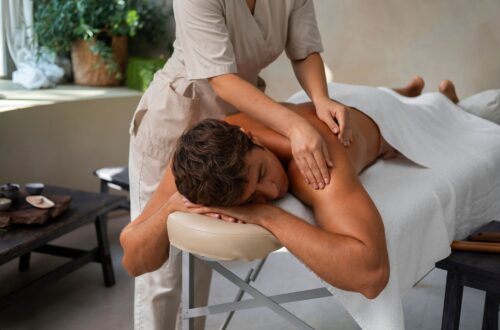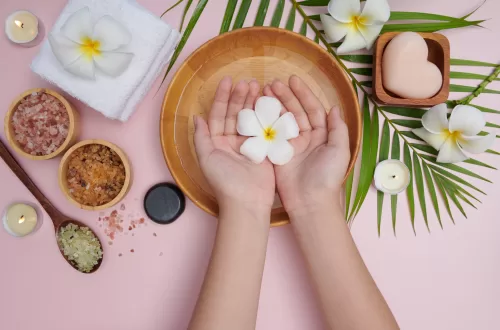Cleaning Ears with Hydrogen Peroxide
It’s not unusual to find yourself needing to clean your ear at one point or another. Whether it’s because of wax build-up or just general ear hygiene, hydrogen peroxide is an effective and safe way to get the job done. Cleaning ear with hydrogen peroxide can help you avoid potential infections. It also helps to maintain healthy hearing habits.
Hydrogen peroxide is a naturally occurring element that is composed of two elements: oxygen and water. It works by releasing oxygen bubbles when applied to a surface. This helps to break down dirt, bacteria and other debris in the ear canal. When used correctly, it can help reduce wax buildup within the ears. It also removes any debris that has accumulated over time. Additionally, using hydrogen peroxide for cleaning your ears can also provide relief from itchy ear symptoms caused by allergies or irritants such as dust mites.
Cleaning Ear with Hydrogen Peroxide
Cleaning your ears is an important part of personal hygiene. However, when it comes to what kind of ear cleaner you should use, it’s easy to get confused about which one is best for you and your ears. One common choice for ear cleaning is hydrogen peroxide – but how effective is it really?
Hydrogen peroxide has been used as a natural remedy for years. Many people consider it the safest option when cleaning their ears. It’s gentle on the skin. Hydrogen peroxide won’t damage delicate tissues in the ear canal like harsher products might. Plus, it helps to break down any wax buildup in the ear canal that can cause irritation or hearing loss if left untreated. Just be sure to use a diluted solution! Ideally no more than 3%. A few drops of hydrogen peroxide can make all the difference!
Safety Precautions
As with all home remedies, safety precautions should be taken when using hydrogen peroxide to clean ears. When using hydrogen peroxide to clean your ears, start by mixing equal parts of water and 3 percent hydrogen peroxide in a small bowl or cup. Using an eyedropper or dropper bottle, fill the ear canal until it’s full. Then leave it for around 5 minutes so that the solution can break down the wax build-up. Afterward, tilt your head so that the solution runs out of your ear into a sink or bowl and repeat on the other side if necessary.
Possible Side Effects of Cleaning Ear with Hydrogen Peroxide
Using hydrogen peroxide can cause itching, stinging, and inflammation in the ears due to its strong chemical reaction. Overuse of hydrogen peroxide may further damage the delicate skin inside of your ear canal or irritate existing conditions such as eczema or psoriasis. Additionally, it has also been known to cause dizziness and vertigo if used excessively or incorrectly.
It is always best to consult with a medical professional before attempting any home remedies for cleaning your ears – including using hydrogen peroxide.
Alternatives to Cleaning Ear with Hydrogen Peroxide
The first option is oil-based drops such as almond oil or olive oil. Simply place two drops of the chosen oil into the ear and allow it to sit for about ten minutes before gently draining with a tissue. This method helps clean out wax build up without damaging the sensitive skin inside your ears. For those who don’t like using an oil product, saline water is another good choice. Mix three tablespoons of salt into one cup of warm water and use a dropper to place in the ear canal before draining out any excess liquid using cotton balls or tissues.
Final Thoughts
Hydrogen peroxide is a common household product and yet, many of us are still unaware of the potential benefits it can bring. It is becoming increasingly popular for cleaning ears due to its antibacterial and antifungal properties. But before you dive into using hydrogen peroxide for your ears, there are some things you should consider first.
When considering this method of ear cleaning, safety should be your utmost priority. Hydrogen peroxide can cause irritation when used in large amounts or if it’s too strong for your skin type. To avoid any potential risks, dilute it with an equal amount of water before applying it to sensitive areas like the ear canal.
image sources
- : image by BillionPhotos | Freepik







One Comment
Pingback: